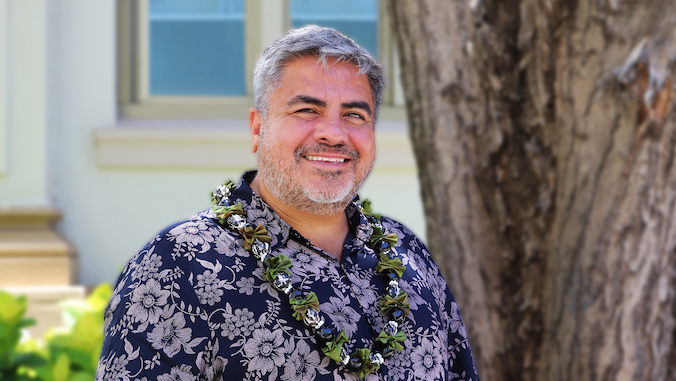
The U.S. Census Bureau appointed Alex Ortega, dean of the University of Hawaiʻi at Mānoa’s Thompson School of Social Work & Public Health, to join its Census Scientific Advisory Committee (CSAC). The committee provides guidance and suggestions on the design and execution of the bureau’s programs and surveys.
“It is an honor to be appointed as one of the new members of the U.S. Census Scientific Advisory Committee,” said Ortega. “While census data have a lot of utility and provide evidence to inform local and national programs and policies, there is a lot to be done and to be improved, especially given the country’s quickly changing demography.”
Ortega is formally trained in epidemiology and survey methodology, and is a health care policy and health equity researcher. Before becoming the dean of the Thompson school in 2023, he directed National Institutes of Health funded research centers at UCLA and Drexel University that have provided scholarly evidence that has transformed the way researchers and policymakers think about health inequities, especially for Latino and immigrant populations.
“It is very important to have reliable and representative Census data, especially here in Hawaiʻi and in the U.S. territories in the Pacific region, where our communities are so rich and diverse,” said Ortega. “We rely on the Census to make important decisions that affect our communities.”
Surveys, public health, climate change consequences
Ortega has conducted national and state-level population-based health surveys, of which many have leveraged U.S. Census data to provide more precise and valid estimations of health outcomes and their predictors across different population groups. He has also used the American Community Survey, which is an annual demographic survey conducted by the Census in his work. His current research is focused on the public health consequences of compounding climate change-related disasters such as hurricanes, floods, and earthquakes and how mis- and disinformation influence chilling effects, which are the effects related to people not exercising their human rights, largely because of fear of the government.
Along with Ortega, the U.S. Census Bureau announced a new CSAC chair and four other new members. The committee meets twice a year, and each member serves a three-year term. The next CSAC meeting will be held September 19—20, 2024.

